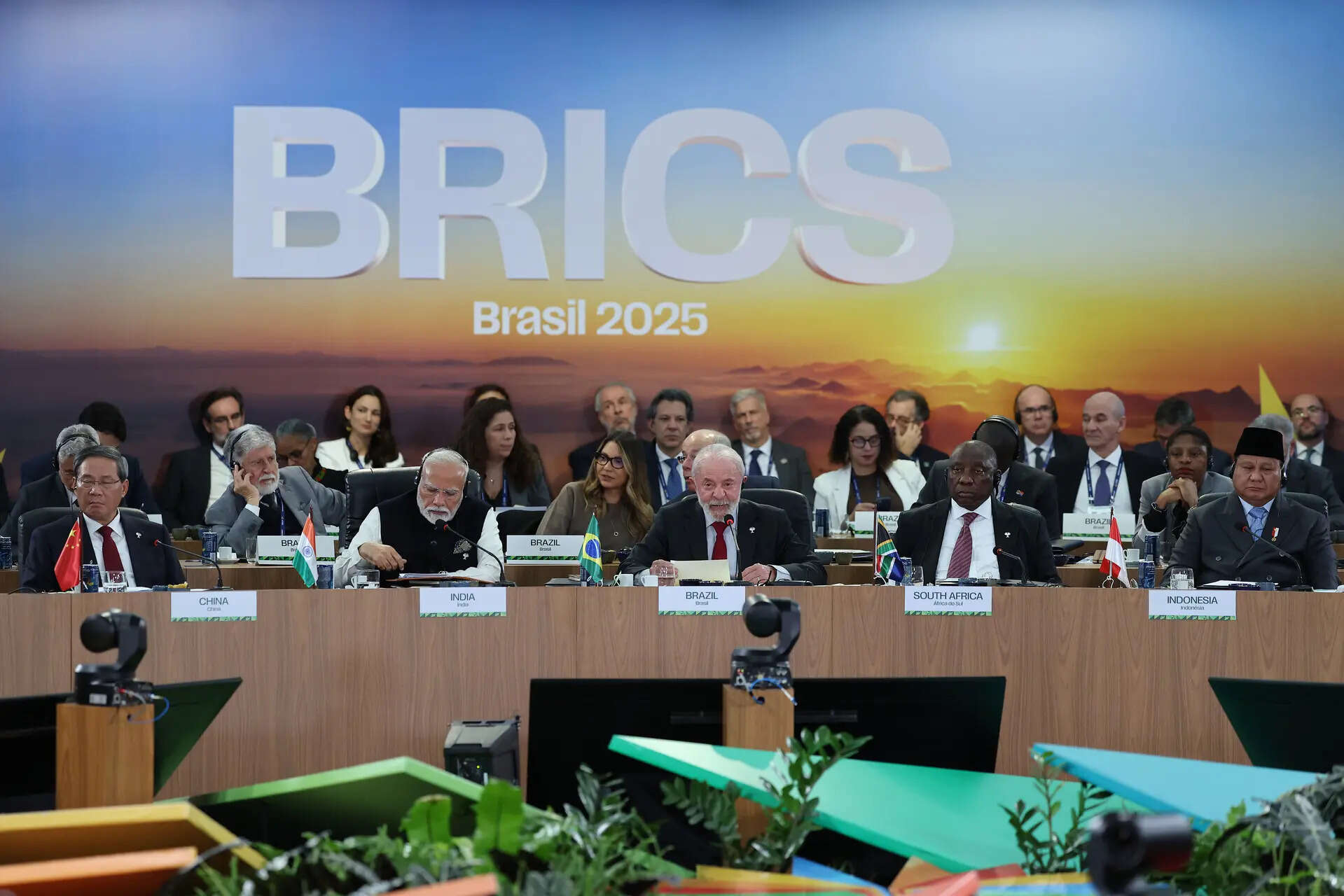
In a historic gathering on the shores of Guanabara Bay, the XVII BRICS Summit convened in Rio de Janeiro on July 6–7, 2025.
Hosted under the Brazilian Chairship and themed “Strengthening Global South Cooperation for a More Inclusive and Sustainable Governance,” the summit culminated in the adoption of the Rio de Janeiro Declaration—a sweeping and assertive manifesto that places the Global South at the center of 21st-century multilateralism.
Marking a significant expansion, the bloc welcomed Indonesia as a full member, and Belarus, Bolivia, Kazakhstan, Cuba, Nigeria, Malaysia, Thailand, Vietnam, Uganda, and Uzbekistan as partner countries. This enlargement signals a powerful evolution of BRICS from a five-member forum into a broader platform of emerging powers aligned in vision, if not yet in coordination.
Reforming Global Governance: From Rhetoric to Roadmaps
At the heart of the Rio Declaration lies a clear and consistent message: the post-war architecture of global governance must be reformed to reflect contemporary multipolarity. The BRICS leaders reaffirmed their commitment to reshaping international institutions—from the United Nations to the Bretton Woods twins (IMF and World Bank)—to ensure equitable representation and genuine voice for developing countries.
The declaration endorses the Pact for the Future, including the Global Digital Compact and Declaration of Future Generations, as central planks for renewing multilateralism. In a significant gesture, China and Russia reiterated support for India and Brazil’s aspirations for permanent seats on a reformed UN Security Council—a signal of intra-BRICS solidarity on global reform, even as geopolitical fractures elsewhere deepen.
AI and Climate Finance: Southern Blueprints for Shared Futures
Two forward-looking frameworks emerged as notable achievements of the Rio Summit:
- The BRICS Leaders’ Statement on the Global Governance of Artificial Intelligence outlines a vision for AI that prioritizes inclusion, trust, capacity-building, and adherence to sovereign regulatory frameworks. It positions BRICS as a voice for AI ethics and equity—countering Northern techno-solutionism with a nuanced, developmentalist lens.
- The Leaders’ Framework Declaration on Climate Finance lays down a resolute call for accessible, predictable, and concessional finance from developed to developing countries. The declaration challenges the persistent shortfalls in climate commitments from the Global North and champions a South-led pathway to just transitions.
- India’s support for COP30 in Brazil and its bid to host COP33 in 2028 reflect the country’s growing diplomatic capital in shaping the climate agenda. The BRICS endorsement of the Carbon Accounting Principles and the Climate Research Platform further signal a maturing climate governance ambition beyond rhetoric.
Trade, Development, and Economic Resilience
On trade and finance, BRICS voices a growing frustration with weaponized globalization and the abuse of environmental concerns for disguised protectionism. The declaration condemns unilateral coercive measures and supports the restoration of the WTO’s dispute settlement system, while backing the accession of Ethiopia and Iran to the WTO.The call for Bretton Woods reform was unequivocal. The bloc demanded quota realignment at the IMF and shareholding correction at the World Bank, reflecting the increasing economic weight of EMDEs (Emerging Markets and Developing Economies). The New Development Bank, under President Dilma Rousseff, was endorsed as a strategic agent for southern-led development, with a growing mandate in local currency lending and climate infrastructure.
Further economic innovation included:
Security, Peace, and Sovereignty: A Realist Ethos
The Rio Declaration devotes substantial space to global security challenges, asserting a realist and sovereignty-driven worldview. It:
- Condemns military strikes on Iran and attacks on Russia’s civilian infrastructure.
- Reaffirms national positions on Ukraine, while endorsing mediation efforts like the African Peace Initiative.
- Calls for an immediate ceasefire in Gaza, full Israeli withdrawal, and Palestinian UN membership, citing the ICJ provisional measures and reaffirming support for a two-state solution.
The document advocates diplomacy over force, endorses “African solutions to African problems,” and renews support for nuclear non-proliferation, outer space as a peaceful commons, and cyber stability under the UN framework.
Cultural Sovereignty and Human Development
In a nod to soft power, BRICS expands its cultural and human development agenda:
- It launched the Partnership for the Elimination of Socially Determined Diseases, aimed at addressing health inequities.
- Endorsed stronger cooperation in digital public infrastructure and educational exchange.
- Advocated reparations discourse through support for the African Union’s 2025 theme: Justice for Africans and People of African Descent.
Brazil’s focus on women’s empowerment, youth inclusion, and traditional knowledge systems further enriched the summit’s human development agenda, setting the stage for more people-centric cooperation.
A Bold Southern Turn
Seventeen years after its inception, BRICS has emerged not merely as a grouping of emerging economies but as a platform articulating an alternative global vision. The Rio Declaration reflects this maturity—at once ambitious and pragmatic, multilateralist and sovereignty-conscious, developmentalist and technologically forward-looking.
India will host the XVIII BRICS Summit in 2026. As the baton passes from Brazil to New Delhi, the question remains: can the expanded BRICS translate its growing normative power into institutional change? The Rio Declaration answers with confidence, if not yet with capacity. The Global South, long marginalized, has found its voice—and it is now shaping the script.

